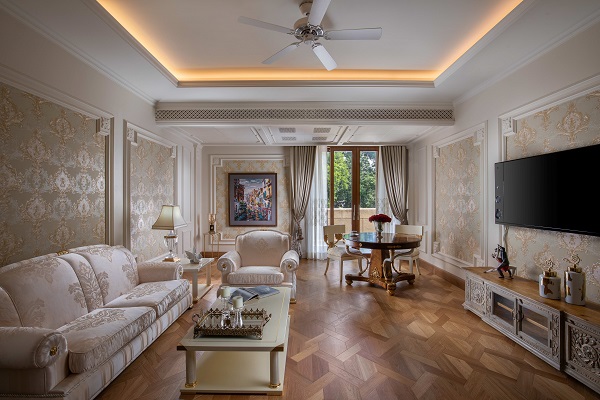SPAN FLOORS, a leading brand of wooden flooring in India and a foremost provider of premium flooring solutions, showcases the eco-friendly benefits of engineered wood floors. In the realm of interior design, where every detail shapes the ambiance, engineered wood floors stand out not only for their beauty and durability but also for their sustainability.
In today’s world, where sustainability is a growing concern, engineered wood floors have emerged as a smart, eco-friendly choice for homeowners and designers. With the growing popularity of wooden floors in the luxury segment of the market, Span engineered wood floors not only offer the aesthetic appeal and durability of traditional hardwood but also contribute significantly to environmental conservation. Let’s explore how engineered wood floors support sustainable living while enhancing the sophistication of any space and aligns with modern lifestyle needs.

Why wood?
Before we begin to talk about engineered wood flooring, let us evaluate why use wood at all? We all know that wood provides a sense of nature and warmth which make it distinct from say marble or tile. But a common myth is that wood is not environmentally friendly. This is true to some extent but not fully. Let us understand it better – wood has a unique quality that it can store CO2. It takes in carbon di-oxide and releases oxygen. As trees grow old, this capacity starts to reduce. If one takes this mature tree from a forest that is being sustainably managed and then converts this into a product, say an engineered wood floor, it now locks the CO2 that is inside this wood for a long period of time. Now this CO2 will not go back into the environment and be a part of the greenhouse gases that are leading to global warming. This means that each time consumers use engineered wood floors that are coming from sustainable wood, they are actually taking all this excess CO2 from the environment.
Engineered wood floors vs Solid wood floors
Engineered wood floors are crafted using multiple layers of wood which not only leads to enhanced stability, but also optimizes the use of natural wood. Unlike solid hardwood floors, which require large quantities of slow-growth timber, the structure of engineered wood floors generally uses less precious hardwood. The engineered flooring plank uses multiple types of wood (hardwood & softwood) or a combination of hardwood veneer and plywood in its structure. This approach reduces the impact on old growth forests, promoting conservation and responsible resource management.
Engineered wood floors vs Marble
The production of engineered wood floors typically requires much less energy compared to other flooring materials like tiles, marble, or synthetic options. Marble in particular is essentially mined and mining is an extremely energy intensive activity. Moreover, marble cannot regenerate itself as a plantation tree can. This regeneration and lower energy requirement contributes to a smaller carbon footprint, making engineered wood a more environmentally friendly choice.

Durability, Longevity & Refurbishing
One of the key benefits of engineered wood floors is their ability to be sanded and refinished to a new colour. This means that an end user can change the color of the flooring when taking up renovation rather than change the entire flooring if it does not work with the new renovation concept. Marble does not give this flexibility. Additionally, quality engineered floors are designed to react much less to humidity fluctuations as well as withstand the wear and tear of everyday life, making them a long-lasting option for homes. The longevity of quality engineered wood floors means fewer replacements over time, which translates to less waste and a lower overall environmental impact.
Creating Luxurious, Eco-Friendly Homes
For those who value both luxury and sustainability, engineered wood floors offer the best of both worlds. These floors provide the timeless beauty of natural wood while supporting eco-friendly practices. Homeowners and designers can create elegant, sophisticated interiors that are also environmentally responsible.


